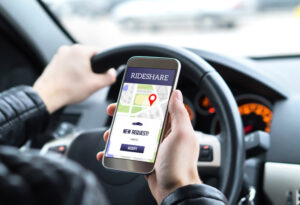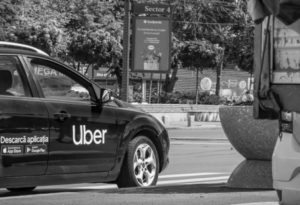Posts Tagged: Uber
News
AB 1340 represents roughly a decade or more of work by labor in the state. Ever since Uber launched in 2009, there’s been an ongoing, global debate on whether rideshare drivers are indeed independent contractors, as claimed by the apps, or bona fide employees, as claimed by workers and labor advocates.
Opinion
OPINION: California’s voters and courts have made clear that Prop 22 should be here to stay. Unfortunately, legal challenges have consistently put our record of innovation to the test.
Opinion
When most people hear “gig economy,” they likely think of Uber, Lyft, and other app-based delivery drivers (such as DoorDash, GrubHub, or Instacart) – not the person handing you medication or injecting you with IV fluids.
Opinion
OPINION: With the pandemic finally abating, people are moving around more, and business is picking up for ride-hailing companies like Uber and Lyft. So the timing is right for the California Air Resources Board to curb the pollution coming from those fleets. Fortunately, CARB’s agenda for its Board Hearing on Thursday includes a well-crafted measure called the Clean Miles Standard which will do just that.
News
As the new year gets under way, the most significant changes in years to the state’s labor law are in effect. The landmark ballot initiative, Proposition 22, favored by six out of 10 voters in November, defines the future of “gig work” in California. It took effect just weeks ago.
Podcast
David Cruz is the head of the Economic and Business Council for the League of United Latin American Citizens (LULAC). LULAC has declined to take a position on California’s hotly-contested Proposition 22, but Cruz has been actively engaged in making the case to pass the measure, including an appearance in an October debate against Latina activist Dolores Huerta, who is in opposition. David joined us by phone to discuss his support for Prop. 22, including a novel take on how to view the nearly quarter-billion dollars spent on the campaign.
News
Proposition 22 has ignited the most expensive ballot proposition fight in California history, exemplifying the emerging 21st century battle of traditional employment-vs.-the gig economy. Meanwhile, the Trump administration is poised to weigh in.
News
Getting back to California from Europe during a global pandemic was certainly not the way I thought my trip would end. In January I arrived in Cordoba, Spain, for a two-and-a-half-month university study-abroad program and that’s where I had been living up until Saturday, March 14.
News
California’s landmark labor law AB 5, the worker-protection law that limits the ability of employers to classify workers as independent contractors rather than employees, is under fire. AB 5 faces lawsuits from organizations representing freelance journalists, ride-share companies and truck owner-operators.
Opinion
OPINION: Assembly Bill 5 has been signed; now the battle begins. The bill compels some businesses, and labor platforms like Uber, Lyft, Doordash, TaskRabbit or GrubHub to classify their on-demand workers as employees with labor law protections.










